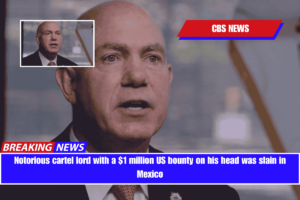As part of a massive restructuring effort led by Health and Human Services Secretary Robert F. Kennedy Jr., teams responsible for handling Freedom of Information Act (FOIA) requests at key federal health agencies — including the Centers for Disease Control and Prevention (CDC) and Food and Drug Administration (FDA) — were gutted on Tuesday.
These moves are triggering alarm among transparency advocates, journalists, and public health officials alike.
The FOIA process is a crucial way for the public, reporters, and advocacy groups to gain access to government data, documents, and records. Without these teams, it remains unclear how or when the growing backlog of pending FOIA requests will be addressed.
FOIA Teams Slashed at Key Health Agencies
According to multiple officials, the entire CDC FOIA staff was eliminated, while two-thirds of the FDA’s FOIA team were cut — leaving only about 50 employees, most of whom don’t process FOIA requests but handle litigation and other disclosures.
“For most types of FOIA requests, there is no staff,” said one FDA official, highlighting the immediate breakdown in operations. Many FOIA staff at the National Institutes of Health (NIH) were also removed, although a small number reportedly remain.
Some staff described the selection process as unclear and unfair, with no explanation given for who was kept and who was let go, raising concerns of procedural violations in federal employee prioritization.
What Happens to Existing FOIA Requests?
Hundreds of pending FOIA requests are now left in limbo. There has been no official word on what will happen to those requests or how long delays might last. Many advocates worry that public access to important health data and research findings will be severely delayed or denied altogether.
FOIA is often used by journalists to investigate health policy, agency decisions, and public safety issues. Advocacy groups and watchdog organizations also rely on FOIA to hold the government accountable.
A Centralized System in the Works
An HHS spokesperson said the goal of the cuts is to centralize FOIA processing across the entire department, making it simpler for the public to submit and track requests. However, no detailed plan or replacement process has been made public yet.
This centralization comes alongside a broader move to tighten control over agency communications. Multiple sources confirmed that communications teams across the CDC, FDA, and other agencies were also heavily impacted by the cuts. In some cases, entire teams were removed.
These changes are occurring under the leadership of Stefanie Spear, RFK Jr.’s former campaign press secretary, who now heads public affairs for the department. Officials say her team has tightened its grip on public messaging and agency-level communications, even taking unprecedented steps to oversee scientific publications at the CDC.
Kennedy’s Push for “Transparency” or Control?
At a Senate hearing in January, Kennedy emphasized his commitment to transparency, saying:
“Public health agencies should be transparent. And if we want Americans to restore trust in public health agencies, we need transparency.”
Ironically, critics argue that these mass cuts to FOIA teams — the very mechanism through which the public gains access to agency records — undermine that same transparency.
Kennedy has previously backed lawsuits to force quicker FOIA responses, criticizing past administrations for slow or selective disclosures. But now, his administration’s approach has left many questioning whether these new changes will lead to better access or simply more centralized control.


















Leave a Reply